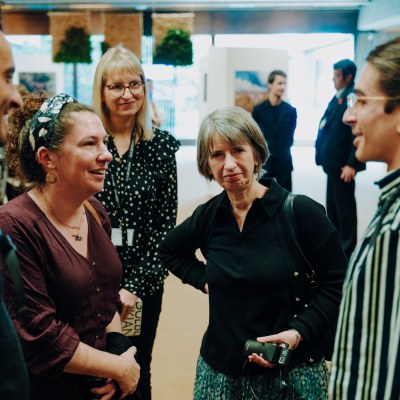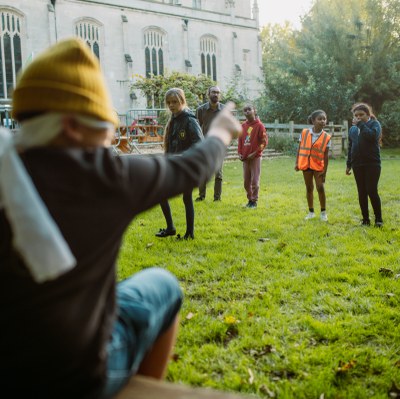Opinion: Holding Onto Our Roofs When The Sun Ain’t Shining
Jacobs Wells Baths - Image Credit: Sam Prosser
Preserving and maintaining community spaces is proving increasingly difficult as local authorities grapple with continued budgetary pressures. Some local authorities are facing or have already issued Section 114 notices – which means expected income isn’t enough to cover expenditure. In response, the Government is considering making it easier for councils to dispose of publicly owned assets to cover rising costs of essential services. Financial news provider, Bloomberg, sets out how, “The move would mark a sharp relaxation of the current constraints, which prevent councils from using money from asset sales to meet budget pressures from day-to-day services without approval from the central government.”
"The choices we make now in response to the challenge of preserving civic and cultural infrastructure in the face of financial uncertainty is a decision that will have lasting consequences for future generations" Emma Harvey
Community groups and charities are collaborating to devise shared solutions to protect civic and cultural assets from disposal and loss; from volunteering to manage local allotments and raising money to invest in parks and play areas, to taking on ownership of local pubs or community buildings and developing their own Neighbourhood Plans.
Whilst there are individual success stories of spaces saved, the challenge lies in how we create a national community asset transfer approach that is replicable, scalable and sustainable. As Brendan Conway, a leading voice in community assets, sets out in a LinkedIn post at the start of the year; “we must not valorise small precedents that have hidden foundations and assume that they are replicable.”
The current model places communities under increasing pressure to do more, though they may not equally hold all the necessary resources to convert short-term passion into sustained success. Existing funding schemes tied to short-term political cycles overlook the complexities of such projects, which require a variety of factors to align. Passionate people who care will inevitably overcommit and inexperienced individuals will underestimate what’s necessary to sustain a recovery effort over time. Some communities may hold the aspiration, but struggle to channel the right energy, investment or efforts consistently and continually. Others may just be overwhelmed, fatigued, or disheartened from past failed efforts to save the things they’ve loved and lost. This could lead to an increasingly disproportionate distribution of social resources, unless we proactively lay the foundations required to enhance success rates equitably across the breadth of UK communities.
The solution as to how we preserve civic and cultural infrastructure amidst financial uncertainty requires a nuanced, adaptable and holistic approach. It’s a delicate balancing act that, if we fail to get right, will leave our communities of tomorrow without the infrastructure they need to allow our more diverse, more densely populated neighbourhoods to function. The more we embark on these ambitious, quirky, complex projects, the more we will see projects fail. Should sites revert back to local authority control at a point where resources and capacity has further depleted, this will only compound risk of future asset disposal, not least because now one might also point to how the community tried, but failed to make it work.
In Bristol, there are a number of organisations driving a community ownership movement and a more strategic approach to community asset management, such as Bristol’s Community Anchor Network who have launched a manifesto to ask for more targeted support and investment to protect the city’s social fabric. More widely, Platform Places are collaborating with councils, community asset managers and owners to repurpose vacant high street properties, whilst Locality are continuing to promote their #SaveOurSpaces campaign by launching a new “community power revolution” to place more power in the hands of communities.
The choices we make now in response to the challenge of preserving civic and cultural infrastructure in the face of financial uncertainty is a decision that will have lasting consequences for future generations. To ensure a resilient and culturally vibrant future for UK communities expanding in diversity and population density, we must adopt a nuanced, bespoke and holistic approach to the assets that underpin our daily lives; one that embraces all the complexities, personalities and idiosyncrasies of our changing social and cultural landscape. And we need to do that pretty soon, before we have no space left to fight for.
Emma Harvey, CEO Trinity Community Arts
#SoldFromUnderYou
#SaveOurSpaces
About this article
- Trinity are committed to advocating for shared community and cultural spaces. We are members of Locality and are currently leading an appeal to restore Jacobs Wells Baths in Hotwells.
- Read our 100 Beacons report that shines a light on the importance of – and understand the risks posed to – Bristol's community and cultural assets.
- Read opinion piece "The preservation paradox: sell now, pay later"








